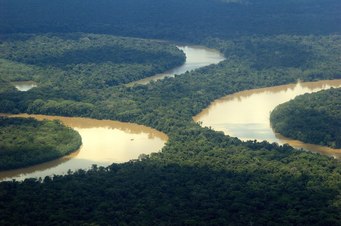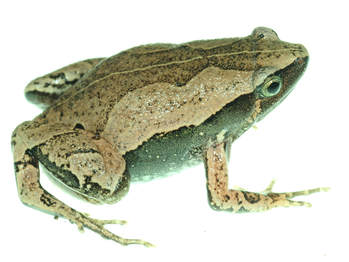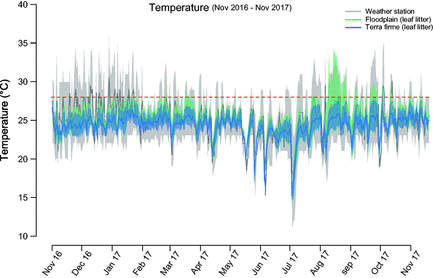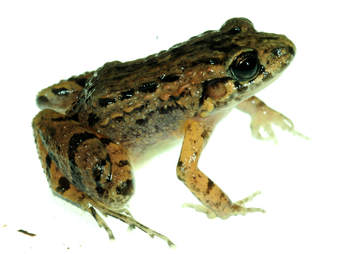



 This week Tropical Conservation Science publishes our last contribution to a survey of chytrid prevalence in lowland Amazonian forests led by our collaborator Dr. Rudolf von May from the University of Michigan. The chytrid fungus has caused precipitous population declines and the collapse of many amphibian species throughout the world, especially in mountains and in places that are moist and moderately cool - just the conditions many amphibians like.  However warm and moist places such as tropical lowland forests are the ecosystem of greatest amphibian species richness. The highest species richness is found in lowland Amazonian forests, known to be home to over 90 species of amphibians at a single site. Considering that chytrid is capable to infect and cause mortality in multiple amphibian hosts, there is potential for for this disease to wreak havoc in these mega diverse places. Yet most of the lowland Amazon amphibian communities that are being surveyed are not declining due to chytrid.  One reason this might not be happening has traditionally been associated to the constant high temperatures found in the lowland Amazon, which are supposed to exceed the thermal tolerance of the fungus. When grown in the lab, the chytrid fungus does not grow and zoospores are killed at temperatures above 28C. Our study shows that temperatures above 28C occur frequently at Los Amigos, a biological station in lowland Amazonian Peru.  Therefore one would expect not to find chytrid in the lowland Amazon, or to find very few infected animals. That's not what we found after surveying the frog community of Los Amigos, in southeastern Peru, because nine species, including Adenomera andreae shown here and Hamptophryne boliviana shown above, were infected by chytrid. Although infection levels were low, our findings suggest that the chytrid can affect amphibians even in very warm places. The study is a collaboration with Roy Santa-Cruz from the Museo de Historia Natural and Universidad Nacional de San Agustín, Arequipa, Dr. Tiffany A. Kosch from James Cook University, and Dr. Vance T. Vredenburg from San Francisco State University.
0 Comments
Leave a Reply. |
Archives
June 2024
CATENAZZI LABNews from the lab Categories |